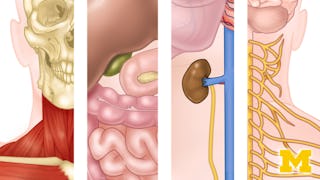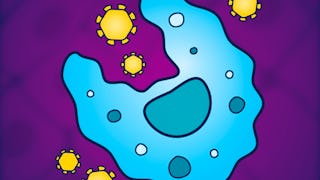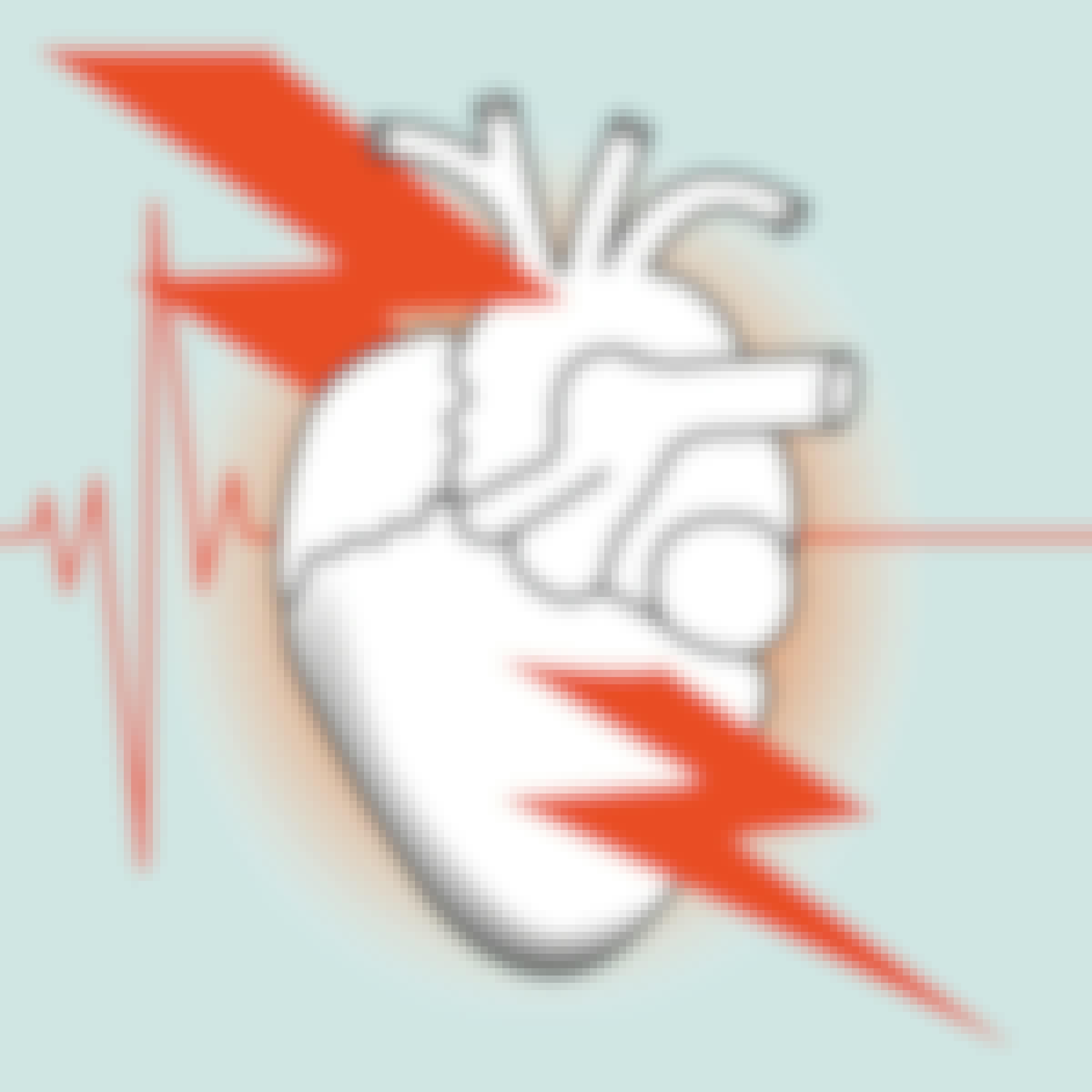Filter by
SubjectRequired
LanguageRequired
The language used throughout the course, in both instruction and assessments.
Learning ProductRequired
LevelRequired
DurationRequired
SkillsRequired
SubtitlesRequired
EducatorRequired
Explore the Pathophysiology Course Catalog

Skills you'll gain: Infectious Diseases, Pathology, Patient Evaluation, Epidemiology, Microbiology, Public Health and Disease Prevention, Internal Medicine, Laboratory Testing, Neurology, Public Health, Biology, Chronic Diseases, Patient Treatment, Preventative Care, Health Care
 Status: New
Status: NewJordan University of Science and Technology
Skills you'll gain: Cardiology, Anatomy, Pathology, Neurology, Life Sciences, Biology, Structural Analysis, Laboratory Experience
 Status: Free Trial
Status: Free TrialJohns Hopkins University
Skills you'll gain: Oncology, Medical Imaging, Patient Education And Counseling, Molecular Biology, Clinical Trials, Preventative Care, Treatment Planning, Patient Evaluation, Primary Care, Pathology, Urology, Patient Treatment, Health Care, Internal Medicine, General Medical Tests and Procedures, Laboratory Testing, Precision Medicine, Anatomy, Biology, Medical Terminology
 Status: Free Trial
Status: Free TrialUniversity of Michigan
Skills you'll gain: Anatomy, Pulmonology, Cardiology, Respiration, Gynecology, Obstetrics And Gynecology, Orthopedics, Neurology, Urology, Kinesiology, Medical Imaging, Vital Signs, General Medicine, Biology, Medical Terminology

University of Colorado Boulder
Skills you'll gain: Kinesiology, Nutrition and Diet, Health Assessment, Pharmacology, Public Health and Disease Prevention, Preventative Care, Respiration, Anatomy, Chronic Diseases, Vital Signs, Biochemistry, Biology, Cardiology
 Status: Free Trial
Status: Free TrialImperial College London
Skills you'll gain: Infectious Diseases, Oncology, Microbiology, Epidemiology, Chronic Diseases, Public Health and Disease Prevention, Geriatrics, Public Health, Pulmonology, Pharmacotherapy, Biology, Patient Treatment, Precision Medicine, Molecular, Cellular, and Microbiology, Treatment Planning, Medical Science and Research, Pathology, Molecular Biology, Laboratory Research, Pharmacology

University of Zurich
Skills you'll gain: Cardiology, Electocardiography, Chronic Diseases, Rehabilitation, Patient Evaluation, Anatomy, Preventative Care, Neurology, Internal Medicine, Medical Emergency, Blood Pressure, Vital Signs, Pharmacology, Biology, Behavior Management
 Status: Free Trial
Status: Free TrialUniversity of Colorado Boulder
Skills you'll gain: Kinesiology, Rehabilitation, Physical Therapy, Neurology, Anatomy, Geriatrics, Control Systems, Mechanics, Electrical Engineering, Basic Electrical Systems, Electronics, Biology, Research
 Status: Free Trial
Status: Free TrialIcahn School of Medicine at Mount Sinai
Skills you'll gain: Matlab, Bioinformatics, Quantitative Research, Unsupervised Learning, Data Synthesis, Mathematical Modeling, Molecular Biology, Data Analysis, Pharmacology, Science and Research, Network Analysis, Analytical Skills, Scientific Methods, Differential Equations, Computational Logic, Experimentation, Biochemistry, Laboratory Experience, Analysis, Biology
 Status: Free Trial
Status: Free TrialRice University
Skills you'll gain: Maternal Health, Obstetrics And Gynecology, Respiration, Anatomy, Urology, Cardiology, Patient Evaluation, Respiratory Care, Gynecology, Pathology, Biology, Molecular, Cellular, and Microbiology, Internal Medicine, Medical Terminology, Infectious Diseases, Nutrition and Diet

Korea Advanced Institute of Science and Technology(KAIST)
Skills you'll gain: Biochemistry, Respiration, Pathology, Biology, Life Sciences, Nutrition and Diet, Chronic Diseases, Molecular Biology, Clinical Nutrition, Internal Medicine, Oncology
 Status: Free Trial
Status: Free TrialIcahn School of Medicine at Mount Sinai
Skills you'll gain: Speech Therapy, Speech Language Pathology, Patient Evaluation, Anatomy, Surgery, Physical Therapy, Chronic Diseases, Acute Care, Respiration, Internal Medicine, Primary Care, Medical Management, Pathology, Medical Terminology, Infectious Diseases, Respiratory Care, Pharmacotherapy, Patient Treatment
Pathophysiology learners also search
In summary, here are 10 of our most popular pathophysiology courses
- Tropical Parasitology: Protozoans, Worms, Vectors and Human Diseases: Duke University
- General Histology: Jordan University of Science and Technology
- Cancer Biology: Johns Hopkins University
- Anatomy: University of Michigan
- Science of Exercise: University of Colorado Boulder
- Immunology: The Immune System and its Failures: Imperial College London
- Myocardial Infarction: University of Zurich
- The Science of Movement: University of Colorado Boulder
- Systems Biology and Biotechnology: Icahn School of Medicine at Mount Sinai
- Human Anatomy & Physiology II: Rice University










